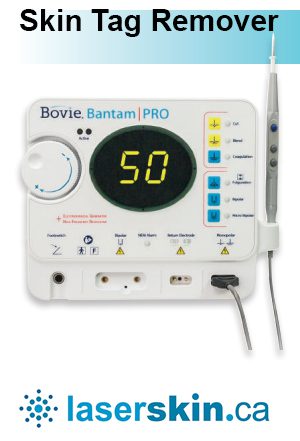
Table of Contents
Skin Tag On Vulva: Causes, Treatments, and Preventive Strategies
Understanding Skin Tags on the Vulva
Skin tags are small, soft growths that commonly appear on areas of the body where friction occurs. Although they are typically harmless, they can sometimes cause discomfort, especially when they appear in sensitive areas such as the vulva. This article will discuss skin tags, including their causes, treatment methods, and preventive strategies, to help you better understand and manage the condition.
What Are Skin Tags?
Definition and Characteristics
Skin tags, also known medically as acrochordons, are small, flesh-coloured or brownish growths that hang from the skin’s surface. They are typically soft, painless, and benign. While they may seem concerning, skin tags are harmless and often occur as a natural part of aging or other physical changes.
Common Locations on the Body
Skin tags can develop anywhere on the body but are most commonly found in areas where the skin experiences friction, either from itself or clothing. These include:
- Neck
- Armpits
- Eyelids
- Under the breasts
- Groin and vulva
Differences from Other Skin Lesions
Differentiating skin tags from other skin conditions is crucial, like warts, moles, or cysts. Unlike warts caused by a viral infection, skin tags are not contagious. Additionally, moles are typically flat or raised, whereas skin tags hang from the skin’s surface.
Causes of Skin Tags on the Vulva
Hormonal Influences
Hormonal changes can play a key role in the formation of skin tags, particularly during pregnancy and menopause. An increase in hormones can cause rapid skin cell growth, forming a skin tag.
Friction and Irritation
Skin-on-skin friction, especially in areas like the vulva, can trigger skin tags. Wearing tight clothing, prolonged sitting, or engaging in activities that create friction may increase the likelihood of skin tags appearing.
Genetic Factors
Genetics may also contribute to the development of skin tag development. If family members are prone to skin tags, you may also have a higher chance of developing them.
Identifying Skin Tags on the Vulva
Symptoms to Look For
Skin tags on the vulva are often small, soft, and painless. However, they can cause discomfort if they become irritated. Symptoms include:
- Small, flesh-coloured or brownish growths
- A soft, hanging texture
- Mild itching or irritation when rubbed
When to See a Doctor
While skin tags are harmless, you should consult a doctor if:
- The skin tag changes in size, colour, or shape
- There is pain, bleeding, or discharge from the growth
- You are uncertain if the growth is a skin tag or a different condition.
Diagnostic Procedures
A doctor can diagnose skin tags through a simple visual examination. In rare cases, a biopsy may be conducted to rule out other skin conditions, especially if the growth shows unusual characteristics.
Treatment Options
Over-the-Counter Remedies
Over-the-counter solutions, such as skin tag removal creams or freeze kits, can help treat small, non-irritated skin tags. However, these treatments should be used with caution, particularly in sensitive areas like the vulva.
Medical Procedures
If skin tags cause discomfort or embarrassment, medical procedures offer safe and effective removal options.
Cryotherapy
Cryotherapy involves freezing the skin tag with liquid nitrogen, causing it to detach within a few days. This swift and minimally invasive technique is a favored treatment option.
Surgical Removal
Surgical removal is a simple procedure where a doctor cuts off the skin tag using sterile scissors or a scalpel. Local anesthesia may be used to reduce discomfort, especially in sensitive areas.
Electrosurgery with Bovie
Skin tag removal on the vulva using a Bovie electrosurgical device is a safe, efficient, and precise procedure medical professionals perform. The Bovie uses a small electric current to cauterize and remove the skin tag while minimizing bleeding. This method is especially effective for sensitive areas like the vulva, where precision and safety are crucial. A local anesthetic is usually administered during the procedure to ensure patient comfort.
The Bovie device targets the skin tag precisely, using controlled heat to cut through the tissue. Simultaneously, the heat seals blood vessels, minimizing the risk of infection and supporting faster healing. The process is quick, often completed within minutes, and requires minimal downtime. Post-procedure, patients are advised to keep the area clean, avoid irritation, and follow any aftercare instructions provided by their healthcare provider. Using the Bovie for vulva skin tag removal ensures a clean, professional approach that delivers immediate results with a low chance of recurrence.
Home Remedies and Considerations
Some people try home remedies, such as tying a thread around the skin tag to cut off blood supply or applying apple cider vinegar. However, these methods can be risky, especially on the vulva, and may cause irritation or infection. It’s always safer to seek professional treatment.
Potential Risks and Complications
Infection Risk
Improper removal of skin tags, particularly through at-home methods, can lead to infections. Indicators of infection include redness, swelling, pain, and discharge.
Misdiagnosis with Other Conditions
Skin tags are sometimes mistaken for other conditions, such as genital warts, cysts, or skin cancer. Misdiagnosis can delay appropriate treatment, so a medical evaluation is crucial for accurate identification.
Possible Recurrence
While skin tags can be removed, new ones may form over time, especially if underlying causes like friction or hormonal changes persist.
Preventing Skin Tags on the Vulva
Lifestyle Adjustments
- Wear loose, breathable clothing to reduce friction.
- Avoid prolonged sitting to minimize irritation in the vulva area.
- Maintain a healthy weight, as excess skin folds can contribute to friction.
Skincare Routine Tips
- Keep the vulva clean and dry to reduce irritation.
- Use gentle, fragrance-free skincare products to prevent skin reactions.
- Apply moisturizers to reduce friction in sensitive areas.
Monitoring Hormonal Changes
If you are experiencing hormonal changes, such as during pregnancy or menopause, regular checkups can help you monitor and manage skin tag formation.
When to Seek Medical Advice
If you are unsure about the nature of skin growth, it’s essential to consult a healthcare professional. A doctor can diagnose your condition accurately and recommend the most appropriate treatment.
Common Myths and Misconceptions
Skin Tags and Cancer
One of the most common myths is that skin tags are a sign of cancer. In reality, skin tags are benign and not linked to cancer. However, any unusual changes in a skin tag’s appearance should be evaluated by a doctor.
Effectiveness of Natural Remedies
Natural remedies, like apple cider vinegar or tea tree oil, are often suggested as treatments. However, these approaches lack scientific evidence and may cause some irritation, especially in sensitive areas like the vulva.
Conclusion
Skin tags on the vulva are common, harmless growths that may cause discomfort or concern for many individuals. While they can be managed through simple treatments, seeking professional advice for safe and effective removal is essential. By understanding their causes and treatment options, you can take control of your skin health and prevent unnecessary complications.
If you notice skin tags on the vulva or are unsure about any skin changes, the best step forward is to consult a healthcare provider.
Frequently Asked Questions (FAQs)
- Are skin tags on the vulva dangerous?
No, skin tags are benign and generally harmless. However, consult a doctor if they cause pain, change in size or colour, or bleed.
- How are skin tags on the vulva removed?
Skin tags can be removed through cryotherapy, surgical removal, or electrosurgery. Home remedies are not recommended in sensitive areas.
- Can skin tags grow back after removal?
While the removed tag won’t return, new skin tags may form over time due to friction or hormonal factors.
- Are there any ways to prevent skin tags on the vulva?
Preventing skin tags involves reducing friction, wearing loose clothing, maintaining a healthy weight, and practicing good hygiene.
- Should I try over-the-counter solutions for vulvar skin tags?
Speak with a doctor before using over-the-counter treatments in sensitive areas to avoid irritation or infection.
By understanding the causes, risks, and treatment options for skin tags on the vulva, you can make well-informed decisions about your skin health and confidently pursue solutions tailored to your needs.

Book Your Free Consultation Today Or Call (647) 560-9233
By providing your phone number you agree to receive informational text messages from laserskin.ca. Consent is not a condition of purchase. Message frequency will vary. Msg & data rates may apply. Reply HELP for help or STOP to cancel.
